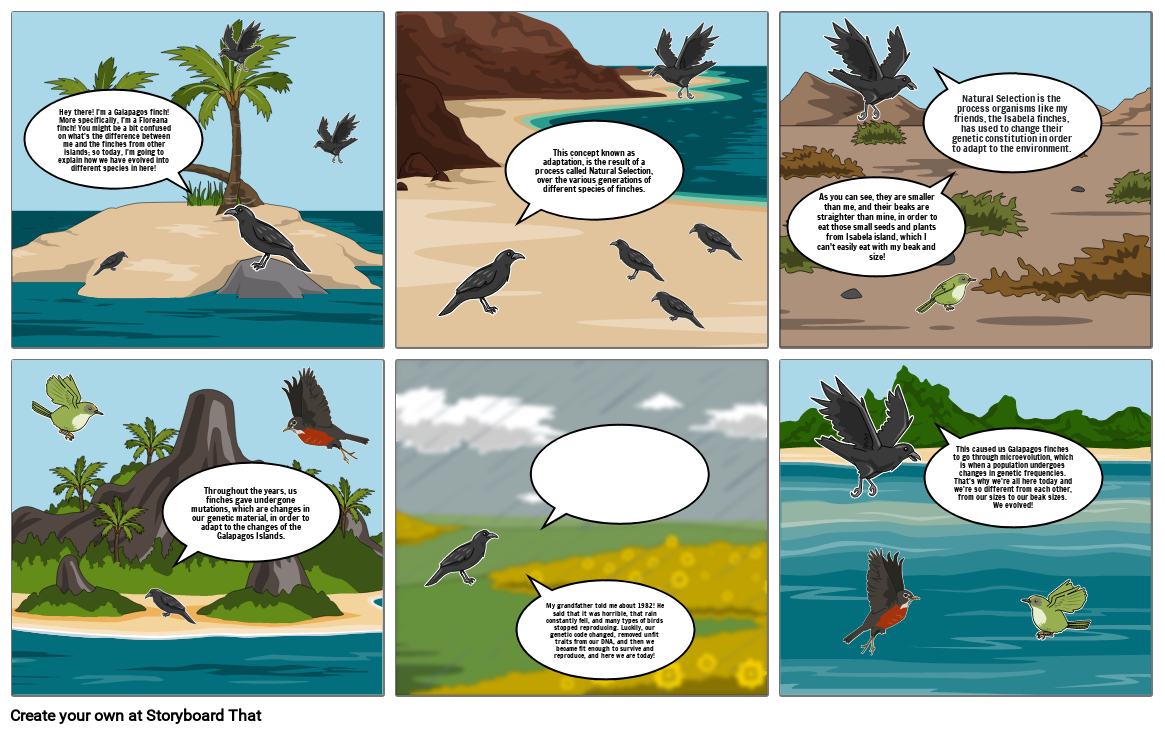Unknown Story

Montāžas Teksta
- Hey there! I'm a Galapagos finch! More specifically, I'm a Floreana finch! You might be a bit confused on what's the difference between me and the finches from other islands; so today, I'm going to explain how we have evolved into different species in here!
- This concept known as adaptation, is the result of a process called Natural Selection, over the various generations of different species of finches.
- Natural Selection is the process organisms like my friends, the Isabela finches, has used to change their genetic constitution in order to adapt to the environment.
- As you can see, they are smaller than me, and their beaks are straighter than mine, in order to eat those small seeds and plants from Isabela island, which I can't easily eat with my beak and size!
- Throughout the years, us finches gave undergone mutations, which are changes in our genetic material, in order to adapt to the changes of the Galapagos Islands.
- My grandfather told me about 1982! He said that it was horrible, that rain constantly fell, and many types of birds stopped reproducing. Luckily, our genetic code changed, removed unfit traits from our DNA, and then we became fit enough to survive and reproduce, and here we are today!
- We were forced to adapt and change in order to survive and reproduce. If we didn't change fast enough, we wouldn't have been able to, for example, survive the strong El Niño in 1982! Only the most fitting of us survived those natural events, a term called Survival of the Fittest.
- This caused us Galapagos finches to go through microevolution, which is when a population undergoes changes in genetic frequencies. That's why we're all here today and we're so different from each other, from our sizes to our beak sizes. We evolved!
Izveidoti vairāk nekā 30 miljoni stāstu shēmu

